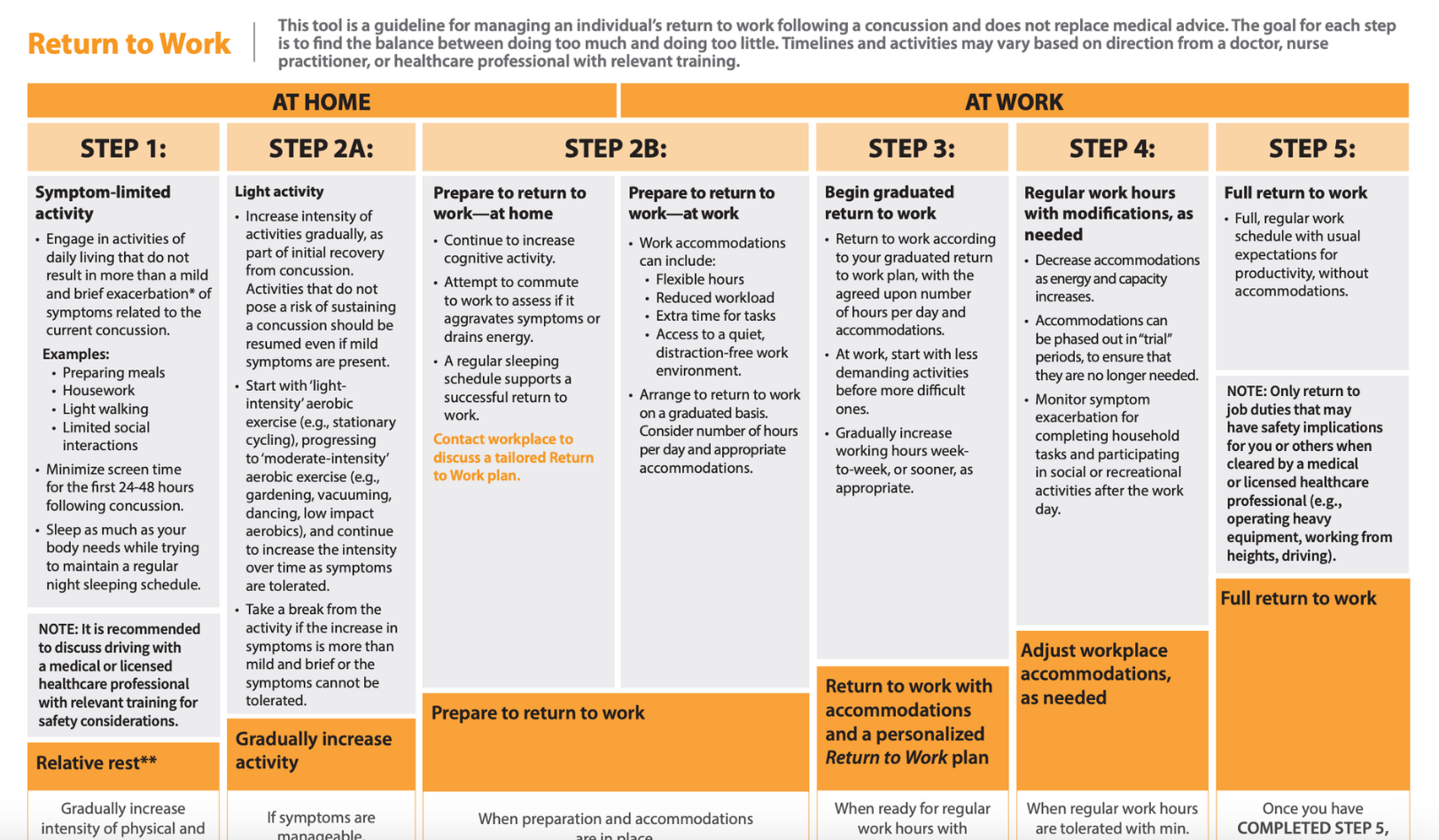Should You Return To A Company That Laid You Off? A Guide To Your Decision

Table of Contents
Analyze the Reasons for Your Layoff
Understanding why you were laid off is the cornerstone of deciding whether to return. This crucial step informs your perspective and helps you anticipate potential future challenges.
Understanding the Circumstances
Were you a victim of company restructuring, performance issues, or an economic downturn? The root cause significantly impacts your decision.
- Review your performance reviews and exit interview notes. These documents offer valuable insights into your employer's perspective on your performance and contributions. Look for specific feedback and areas for improvement, if any were mentioned.
- Research the company's financial performance and industry trends around the time of your layoff. News articles, financial reports, and industry analyses can shed light on the broader context surrounding your layoff. Was it a company-specific issue, or an industry-wide trend?
- Consider if the reasons were out of your control (e.g., company-wide restructuring) or related to your performance. If the layoff was due to factors beyond your control, returning might be a more palatable option. However, if performance issues were cited, honest self-reflection is necessary.
Assessing Company Culture Changes
Has anything changed since your departure? Has the company addressed issues that contributed to the layoffs? A changed landscape might present a better opportunity for a successful return.
- Search for employee reviews on sites like Glassdoor to gauge the current workplace environment. These reviews can provide valuable insights into the current company culture, management style, and employee morale.
- Network with former colleagues to understand their perspectives on the company's current state. Their firsthand accounts can offer invaluable information not readily available through online resources.
- Consider if the original issues have been rectified. If the reasons for your layoff were systemic issues within the company, did the company take steps to address them?
Evaluate the Job Offer Itself
Beyond the emotional implications, objectively evaluate the offer itself. Does it meet your current career aspirations and financial needs?
Salary and Benefits
Is the compensation package competitive in today's market? Consider the time that has passed since your layoff and any salary increases you might have reasonably expected in the intervening period.
- Research average salaries for similar roles in your location. Websites like Salary.com and Glassdoor provide valuable data for benchmarking salaries.
- Compare the offered benefits to your previous package and other current job opportunities. Consider healthcare, retirement plans, paid time off, and other benefits that contribute to your overall compensation.
- Consider any potential future growth opportunities within the company. Does the new role offer clear pathways for advancement and professional development?
Role and Responsibilities
Does the new role align with your career goals? Is it a step up, a lateral move, or a step down? A significant change in responsibilities might signal a lack of trust or different expectations.
- Evaluate the challenges and opportunities presented by the role. Does it offer opportunities to learn new skills or utilize existing ones?
- Reflect on how the role fits into your long-term career aspirations. Is this a stepping stone to your ultimate career goals, or is it a detour?
- Consider if the role allows you to utilize your skills and experiences fully. A role that underutilizes your talents can lead to dissatisfaction and stagnation.
Consider Your Personal Circumstances and Career Goals
This isn't just about the job; it's about your overall career trajectory and personal well-being.
Long-Term Career Prospects
Does returning offer long-term career stability and advancement? Or is it a temporary fix that might hinder your future prospects?
- Assess your career trajectory and evaluate the long-term opportunities offered by the company. Are there clear paths for advancement and promotion?
- Consider whether this opportunity will enhance your skillset for future roles. Will this position help you develop new skills or build your expertise in a valuable area?
- Consider if the company's industry is stable and shows growth potential. A stable and growing industry provides greater long-term job security.
Emotional Considerations
How do you feel about returning? Returning to a place where you experienced a layoff can be emotionally challenging.
- Consider your emotional wellbeing and if returning would lead to additional stress or anxiety. Honest self-reflection is key.
- Evaluate the reasons for your past unhappiness, if any, and whether they have been addressed by the company. If past issues remain unresolved, returning might lead to similar problems.
- Consider seeking guidance from a career counselor or mentor to process your feelings. A neutral third party can provide valuable perspective and support.
Negotiating Your Return
Don't be afraid to leverage your situation and negotiate. You have valuable experience and insights.
Leveraging Your Position
Use your knowledge to negotiate a better package or a more suitable role.
- Research comparable salaries in the market for similar roles. Armed with this information, you can confidently negotiate a competitive compensation package.
- Prepare a list of your accomplishments and contributions since your layoff. Highlight your skills and experience to showcase your value.
- Articulate your value and why you deserve a competitive compensation package. Clearly explain your worth and the contributions you can bring to the company.
Setting Clear Expectations
Establish clear expectations regarding future job security and career progression to avoid repeating past mistakes.
- Outline your expectations for future opportunities within the company. This shows your proactive engagement and commitment.
- Express your concerns about future job security and seek reassurances from the employer. Transparency and clear communication are crucial.
- Document any agreements you make in writing. This protects you and provides a clear record of the understanding reached.
Conclusion
Returning to a company that laid you off is a multifaceted decision. Carefully weigh the pros and cons, analyzing the reasons for your layoff, evaluating the job offer comprehensively, considering your personal circumstances, and negotiating effectively. Don't rush into a decision; take your time to assess all factors before deciding whether to accept a job offer from a previous employer. Remember, your career progression is paramount. Use this guide to make the best decision regarding your career and whether to return to a company that laid you off.

Featured Posts
-
 Denmark Accuses Russia Of Spreading False Greenland News To Exacerbate Us Tensions
Apr 26, 2025
Denmark Accuses Russia Of Spreading False Greenland News To Exacerbate Us Tensions
Apr 26, 2025 -
 2024 Nfl Draft Green Bays First Round Preview
Apr 26, 2025
2024 Nfl Draft Green Bays First Round Preview
Apr 26, 2025 -
 Blockchain Analytics Leader Chainalysis Integrates Ai Startup Alterya
Apr 26, 2025
Blockchain Analytics Leader Chainalysis Integrates Ai Startup Alterya
Apr 26, 2025 -
 Los Angeles Palisades Fire A List Of Celebrities Who Lost Their Properties
Apr 26, 2025
Los Angeles Palisades Fire A List Of Celebrities Who Lost Their Properties
Apr 26, 2025 -
 Cassidy Hutchinson Plans Memoir Detailing Her Jan 6 Testimony
Apr 26, 2025
Cassidy Hutchinson Plans Memoir Detailing Her Jan 6 Testimony
Apr 26, 2025
Latest Posts
-
 Professional Styling Decoded Understanding Ariana Grandes Dramatic Makeover
Apr 27, 2025
Professional Styling Decoded Understanding Ariana Grandes Dramatic Makeover
Apr 27, 2025 -
 Exploring Ariana Grandes Hair And Tattoo Transformation Professional Commentary
Apr 27, 2025
Exploring Ariana Grandes Hair And Tattoo Transformation Professional Commentary
Apr 27, 2025 -
 Ariana Grandes Bold New Look A Professional Assessment Of Her Hair And Tattoos
Apr 27, 2025
Ariana Grandes Bold New Look A Professional Assessment Of Her Hair And Tattoos
Apr 27, 2025 -
 Analyzing Ariana Grandes New Style Professional Opinions On Her Transformation
Apr 27, 2025
Analyzing Ariana Grandes New Style Professional Opinions On Her Transformation
Apr 27, 2025 -
 The Professionals Take On Ariana Grandes Latest Hair And Tattoo Choices
Apr 27, 2025
The Professionals Take On Ariana Grandes Latest Hair And Tattoo Choices
Apr 27, 2025
